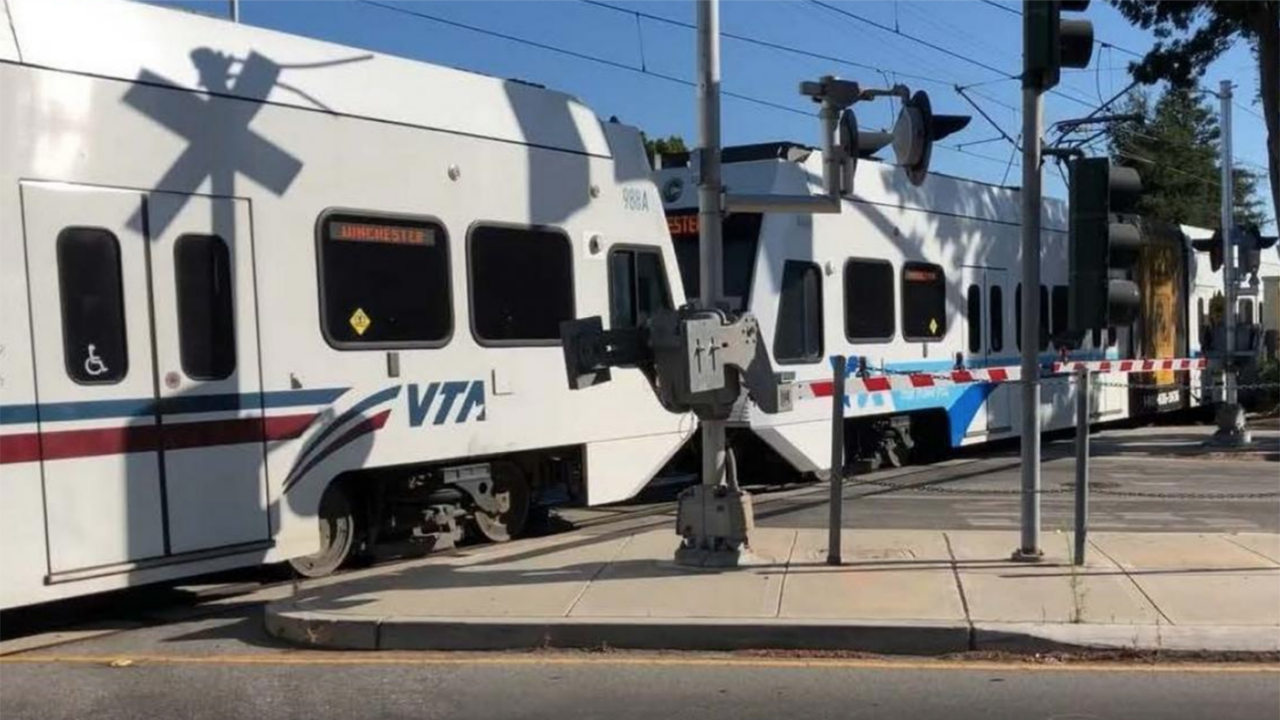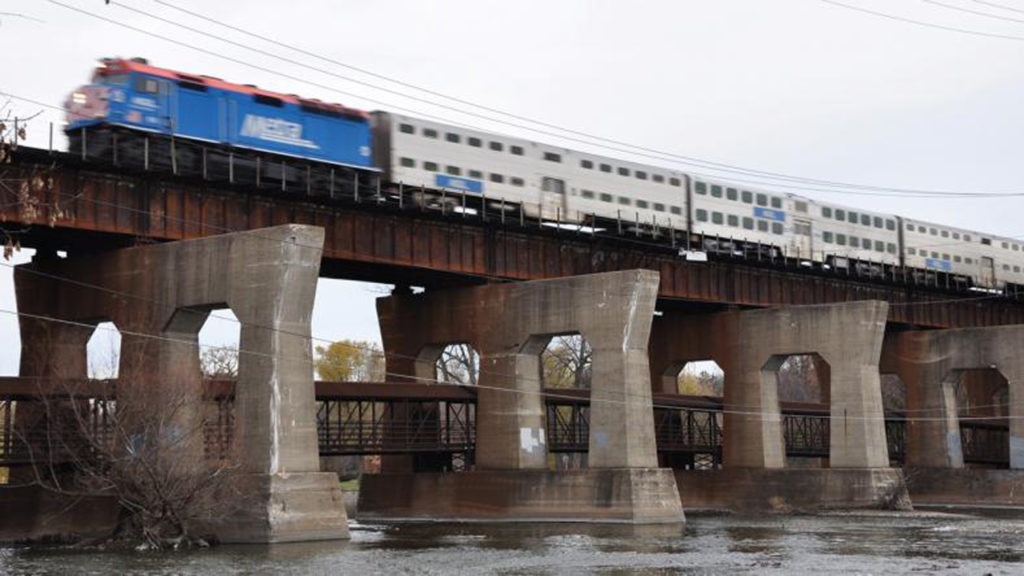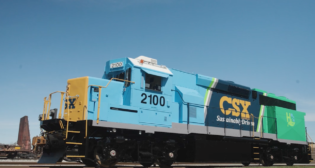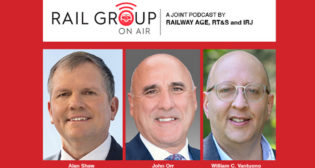
Transit Briefs: BART, LACMTA, Metra
Written by Marybeth Luczak, Executive Editor
An 18-month pilot could launch in summer 2024 “with the intention of eventually making free and reduced transfers a permanent policy across the Bay Area,” according to a Bay City News Foundation report.
San Francisco Bay Area public transit officials consider a “free transfer” pilot. Also, the Los Angeles County Metropolitan Transportation Authority’s (LACMTA) drug-free campaign on three light rail lines is showing promise; and Union Pacific (UP) is transferring its Chicago commuter rail services to Metra.
San Francisco Bay area transit officials are considering a pilot project that could offer riders free or heavily discounted transfers, The Bay City News Foundation reported on March 28.
If approved, the 18-month pilot could launch in summer 2024—at the same time as the next-generation Clipper system—“with the intention of eventually making free and reduced transfers a permanent policy across the Bay Area,” according to Bay Area Rapid Transit (BART) Financial Planning Director Michael Eiseman, who spoke at a March 27 Metropolitan Transportation Commission (MTC) committee meeting, The Foundation said.
“‘The proposed policy is, in principle, that the act of transferring between agencies should not increase the overall fare paid,’ Eiseman said … ‘Customers can use all of (the Bay Area’s) services as one system.’”
Riders transferring between two or more transit agencies would “only pay the full fare for the first transit agency they use,” according to The Bay City News Foundation. For example, a transfer from BART to Santa Clara Valley Transportation Authority “would be discounted up to $2.50, as long as the transfer is made within two hours of paying a BART fare.”
The pilot project could use “some $22 million that the MTC has set aside for efforts to streamline usage of the Bay Area’s myriad transit agencies,” The Foundation reported. “The MTC would allocate funding up-front to participating transit agencies to offset the loss in fare revenue.
“The pilot could also be extended up to two years if there is funding left over or if new funds become available, according to William Bacon, MTC’s principal of transit programs.”
“‘We’ll be closely monitoring how the pilot is working in terms of growing ridership being our overall most important goal,’ Bacon said. ‘And then secondarily to that, encouraging users to transfer between agencies and making more trips on transit than they might be making under the status quo.’”
According to The Foundation, MTC’s Blue Ribbon Transit Recovery Task Force included free or reduced-cost transfers as part of a plan it developed in 2020 that “intended to unify the wayfinding, mapping and fare systems across the Bay Area’s public transit agencies.”
MTC and individual transit agencies must “approve a memorandum of understanding” to implement the project, The Foundation said.

LACMTA in February launched a 30-day pilot to reduce illegal drug use on the B (Red), A (Blue) and L (Gold) light rail lines in response to an increasing number of rider complaints. Using a comprehensive, layered approach, the Drug-Free Metro Campaign sought to “reduce drug-related crime, increase awareness of the risks of drug use and provide support to those struggling with addiction resulting in a safer transit experience for our customers and employees,” LACMTA reported on March 30.
The campaign included a strategic deployment of Metro Ambassadors and outreach workers as well as members of Metro Transit Security, Contract Security, LAPD and the LA Sheriff’s Department. According to the transit authority, Metro Transit Security was reassigned to rail riding teams, and the Customer Experience department started an anti-drug communications campaign. Also offered to those who qualified: a drug diversion program through the Los Angeles City Attorney’s office.
LACMTA said it is “encouraged by the initial results,” and the Board has voted to extend the pilot by 90 days. Results so far include:
- From Feb. 13-March 11, there was an overall 10% decrease in customer reported drug-related complaints on the system, as measured by calls into the LACMTA Customer Service Line, 323.GO.METRO.
- By Week 4 of the campaign, Transit Watch App reports related to smoking, alcohol and drugs were down 78% compared with Week 1. Week 1 had a total of 701 reports, but by Week 4 the total was 154.
- Overall, 68 Metro Code of Conduct citations and 36 warnings were issued by Metro Transit Security. Partners at LAPD and the LA Sheriff’s Department also made 205 drug-related arrests.
LACMTA staff are due to report back to the Board in June on this effort. The transit authority noted: “Possessing and/or using an illegal drug or substance, smoking of any kind and drinking or possessing alcohol of any kind has been and continues to be strictly prohibited on Metro.”
In a related development, LACMTA on March 6 held an official launch and celebration for its ambassador pilot program at Union Station.

Union Pacific (UP) on March 30 reported that it is working “to safely and seamlessly transfer its commuter rail operation in Chicago” to Metra by the end of first-quarter 2024. As part of the transition, Metra will take over services including train crew, mechanical, car cleaning, rolling stock maintenance, ticket sales and some engineering services, according to the Class I, which noted that several management employees moved over to Metra earlier this year and Mechanical and Transportation craft professionals are expected to transfer in third-quarter 2023.
UP will continue to maintain the track and manage train movements on its lines: Union Pacific West, Union Pacific Northwest and Union Pacific North (see map, above).
“We greatly appreciate Metra’s collaboration in continuing to provide excellent and safe service to commuters during this transition,” UP Executive Vice President-Operations Eric Gehringer said. “Thank you to our employees for your outstanding dedication and teamwork to provide uninterrupted commuter experience.”
Railway Age Contributing Editor David Peter Alan wrote at the time that “UP v. Metra does not appear to have much precedential value, and it seems unlikely that it will affect policy and custom regarding operation of regional railroads, often called ‘commuter’ railroads. The facts concerning the UP operation of Metra trains on lines that it inherited from the C&NW in 1995 appear unique. Much of the track over which regional railroads in the Northeast operate are owned by public entities: state transportation departments, the railroads themselves, or Amtrak, which is considered part of the public sector for regulatory purposes (Department of Transportation, et al. v. Association of American Railroads, 575 U.S. 43 [2015]).
“Many other local passenger railroads operate over track owned by a private-sector railroad, and the parties have been able to reach agreement consistently about those operations. No railroad like Metra had claimed before that a private-sector railroad had the obligation of a common carrier to keep operating trains as it had done before, and without a new contract. It appears highly unlikely that one will in the future, either.”
The historic CB&Q (Chicago, Burlington & Quincy) line to Aurora runs on right-of-way owned by BNSF, which still operates it under contract with Metra.




